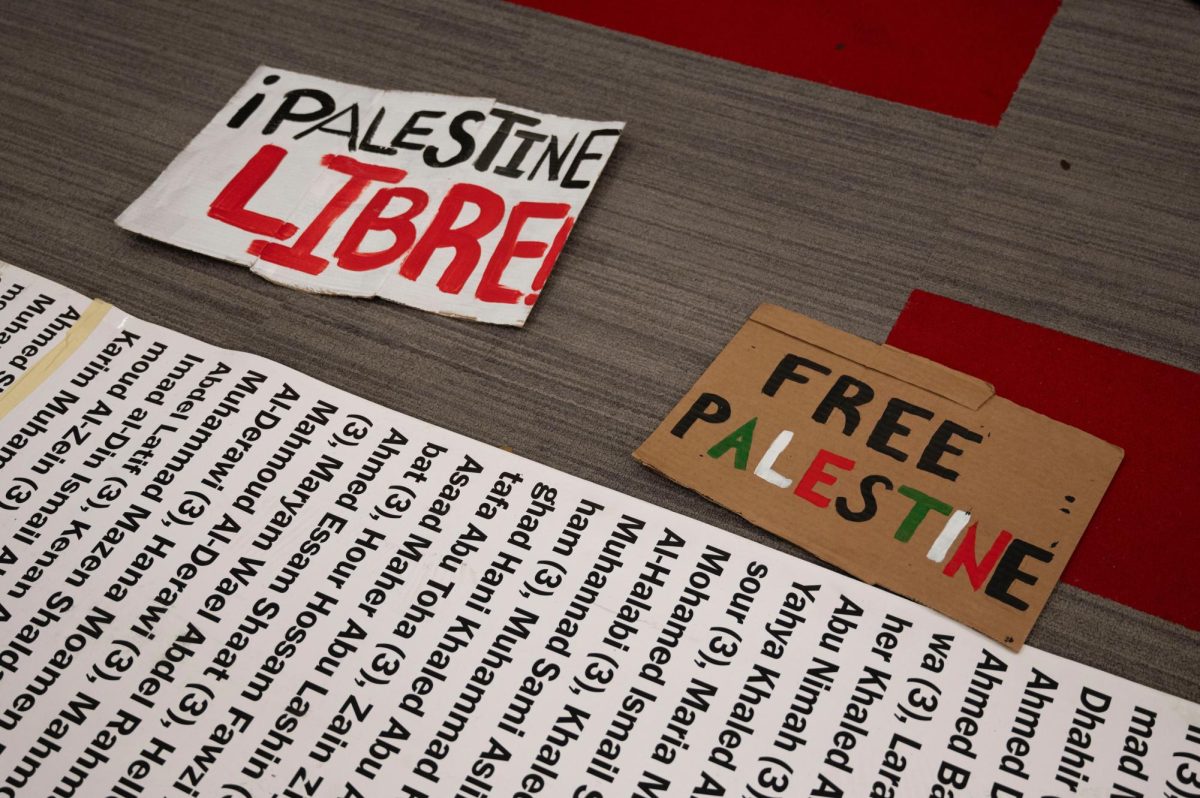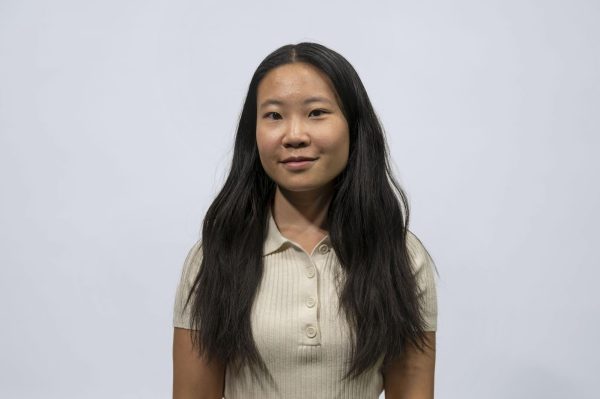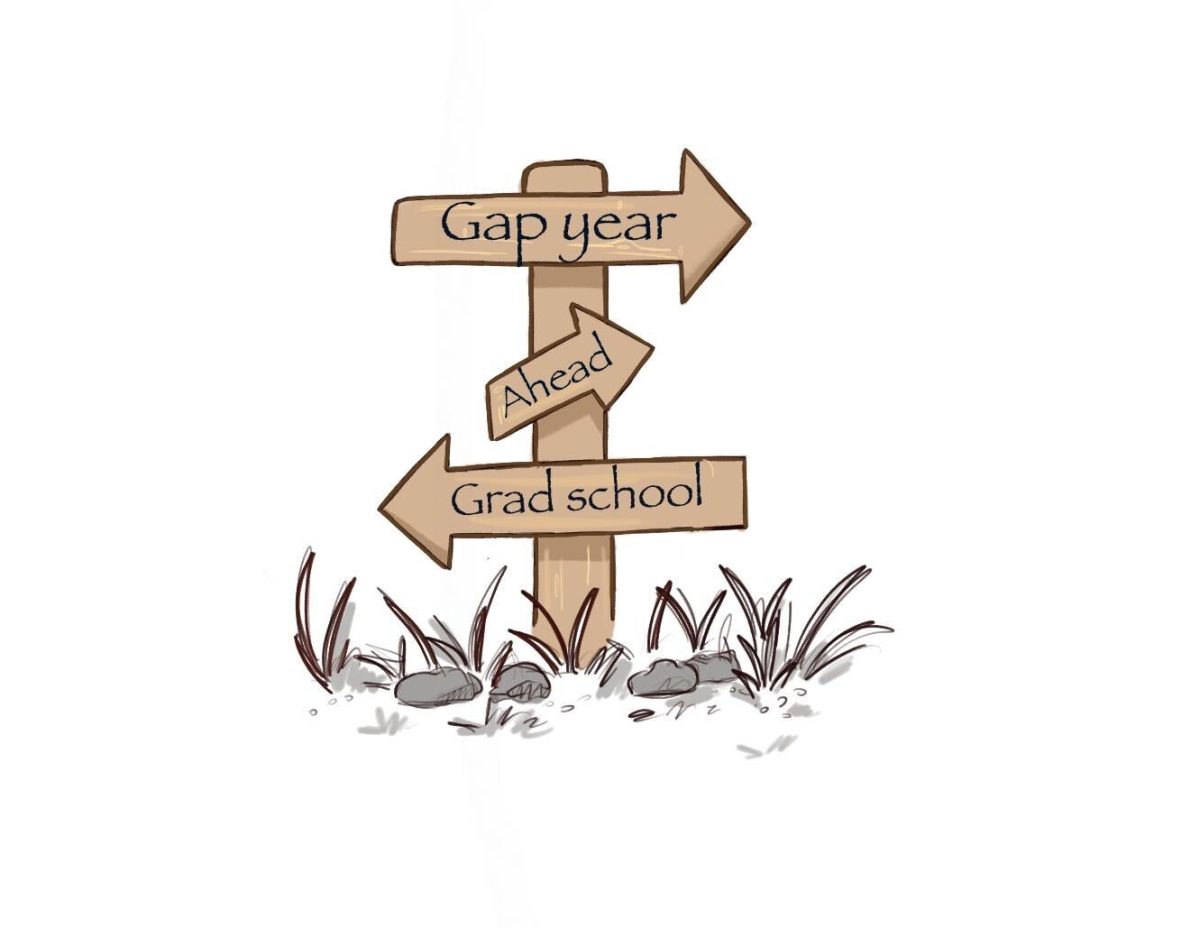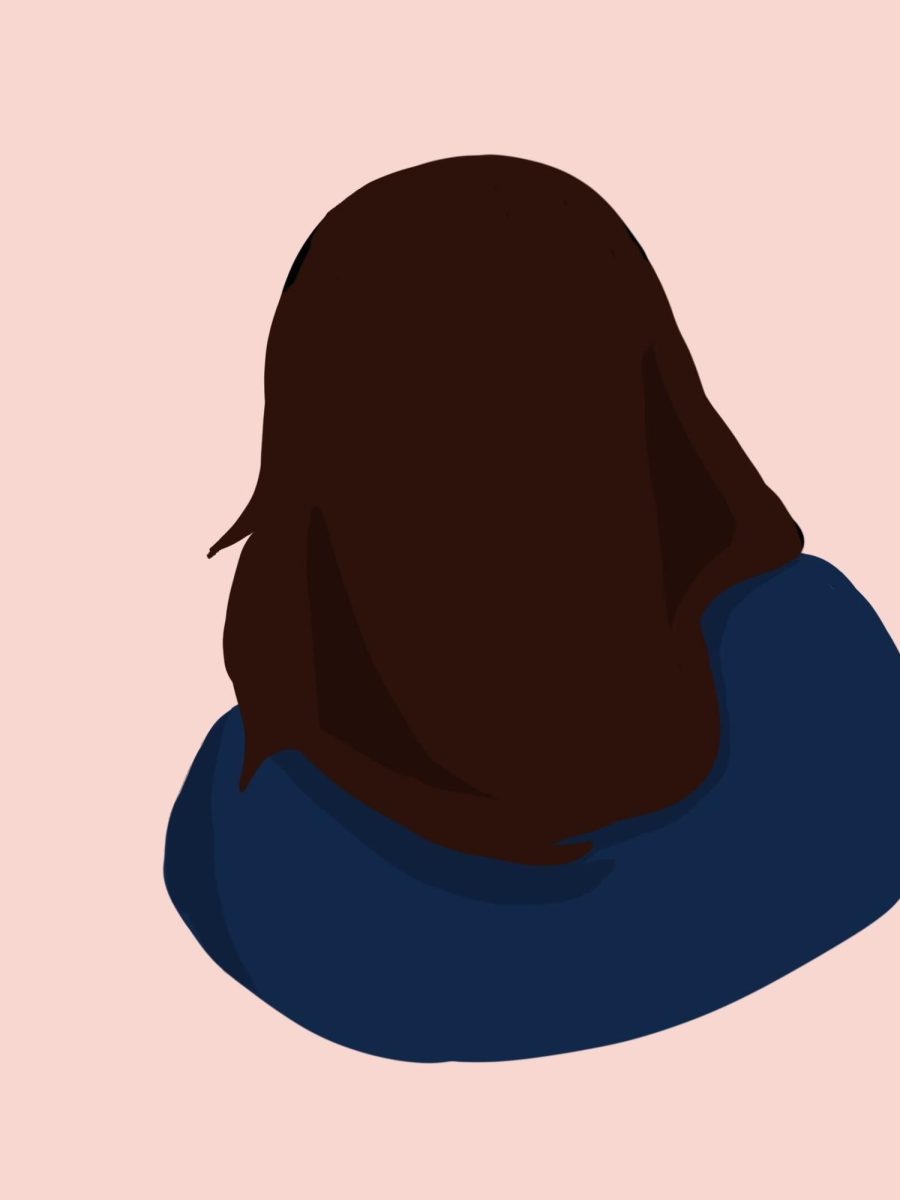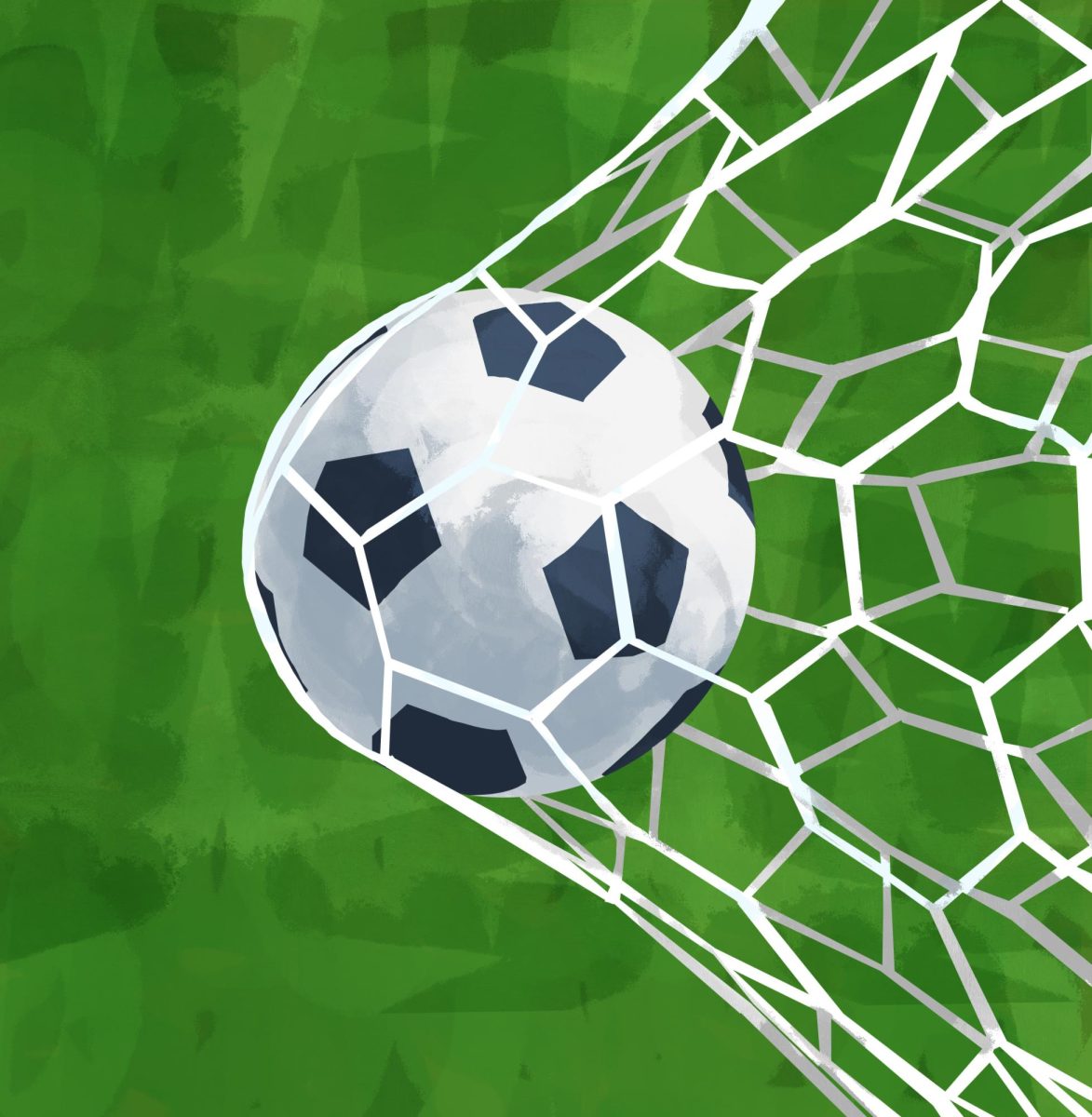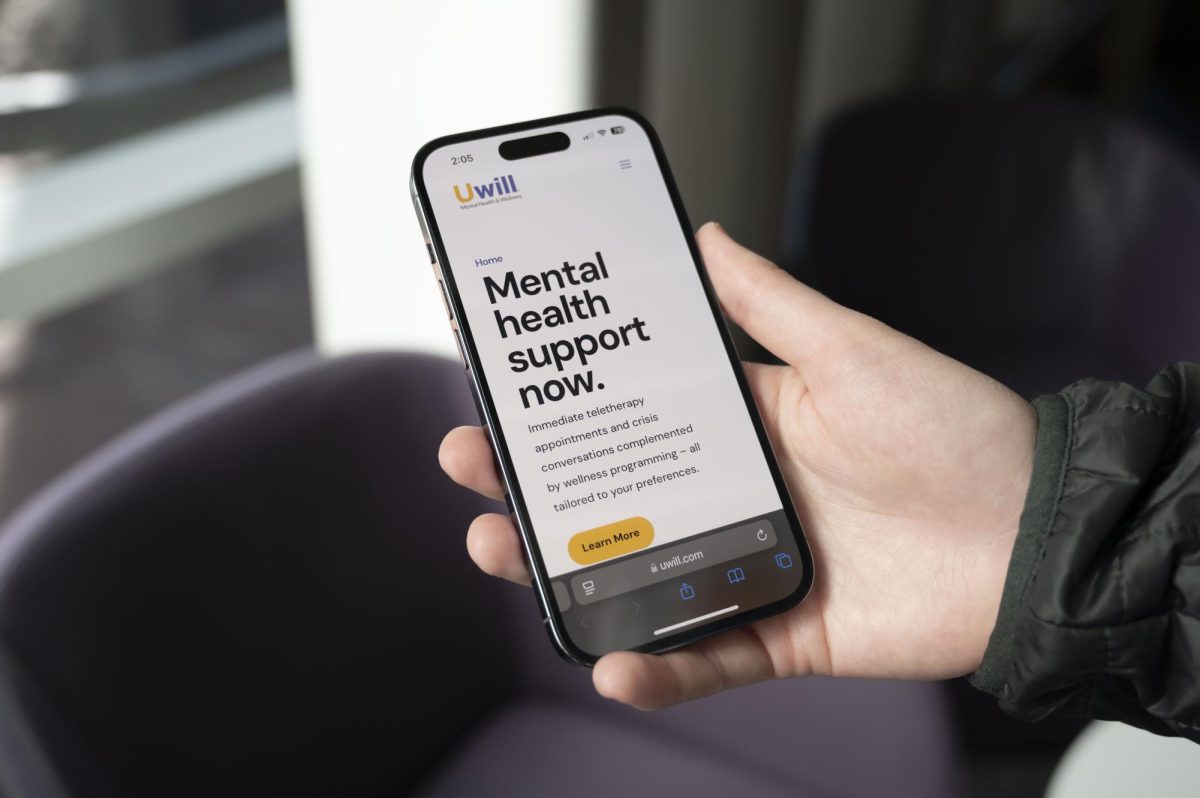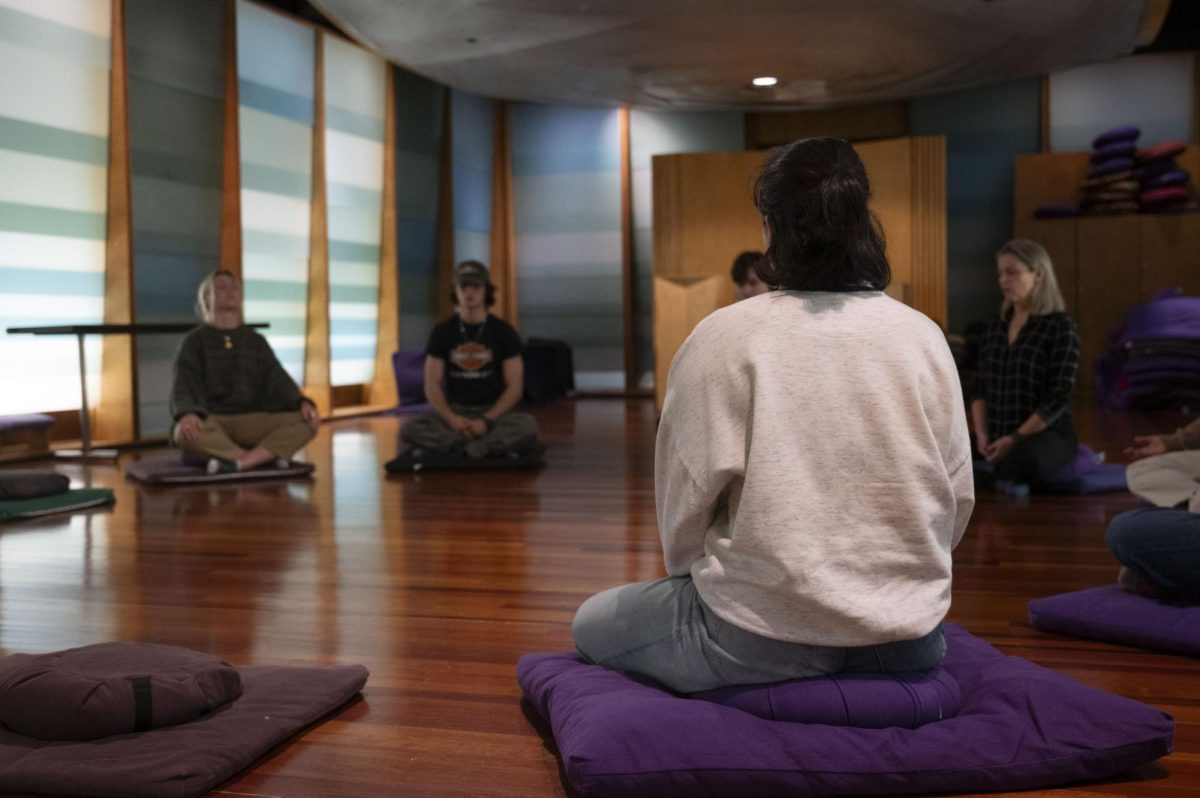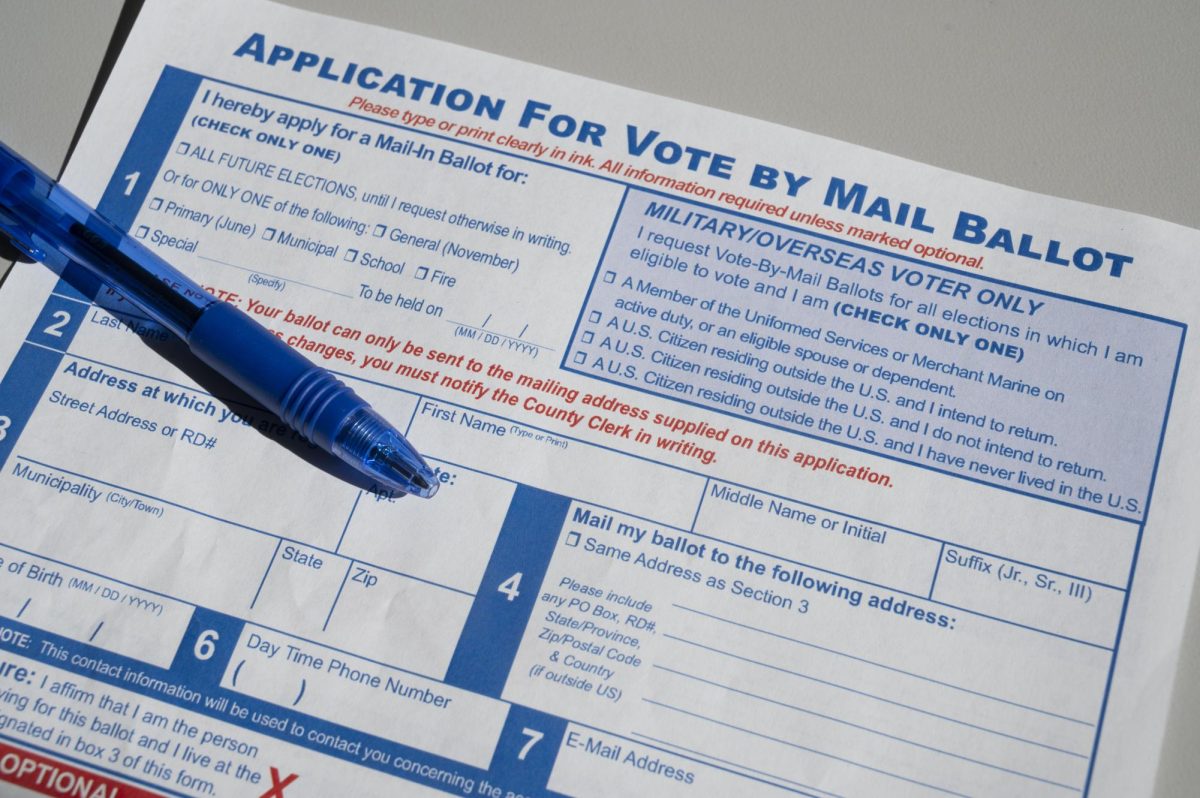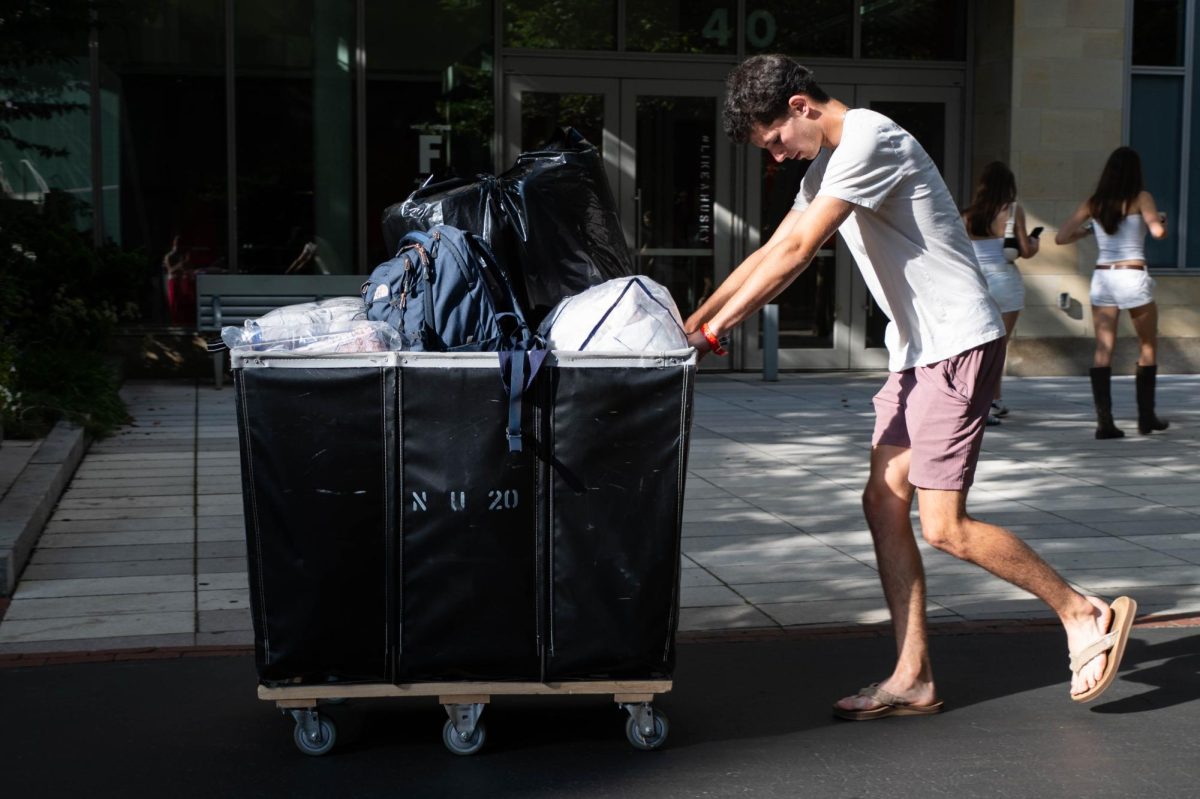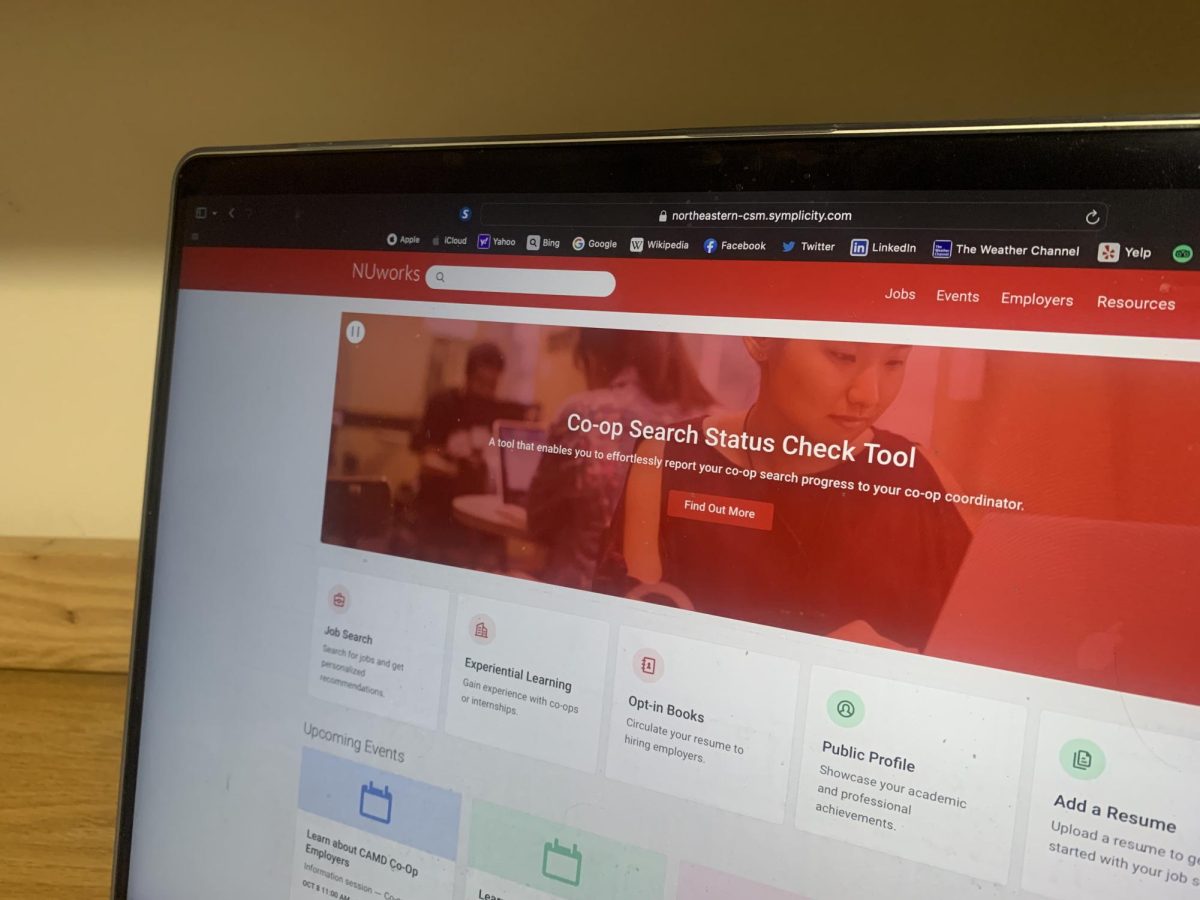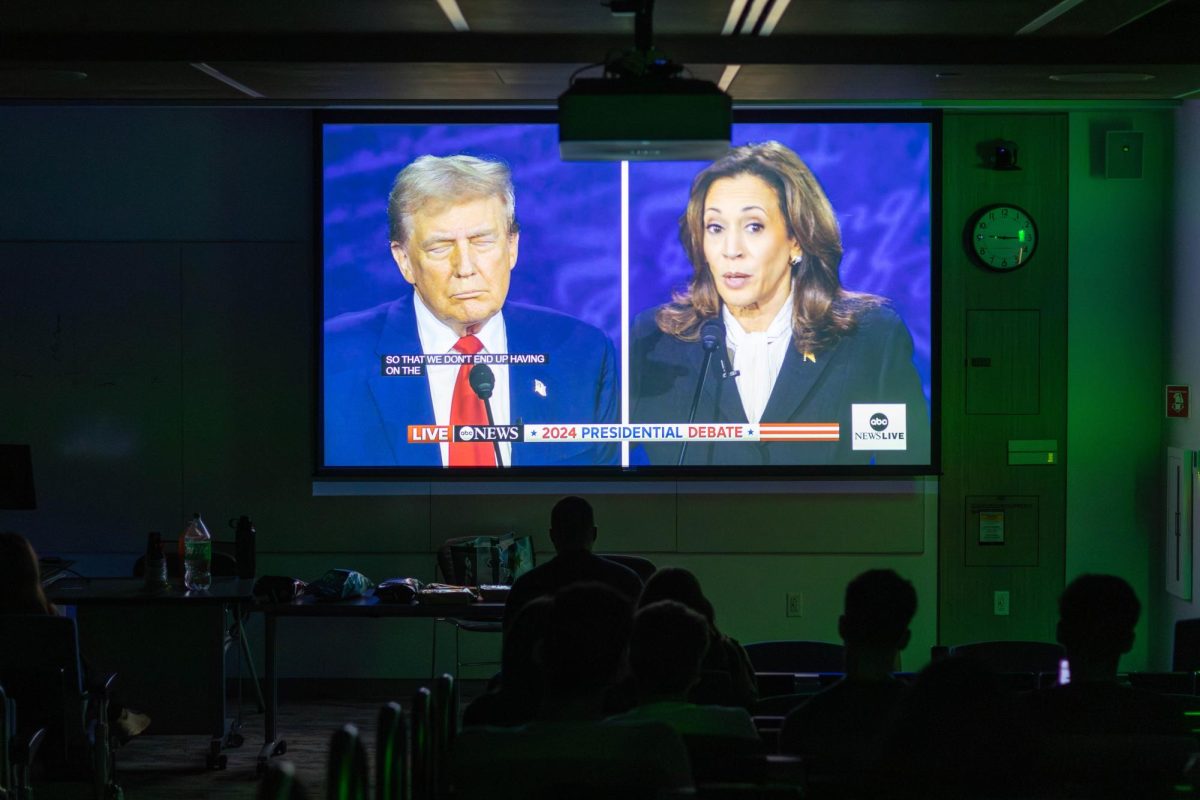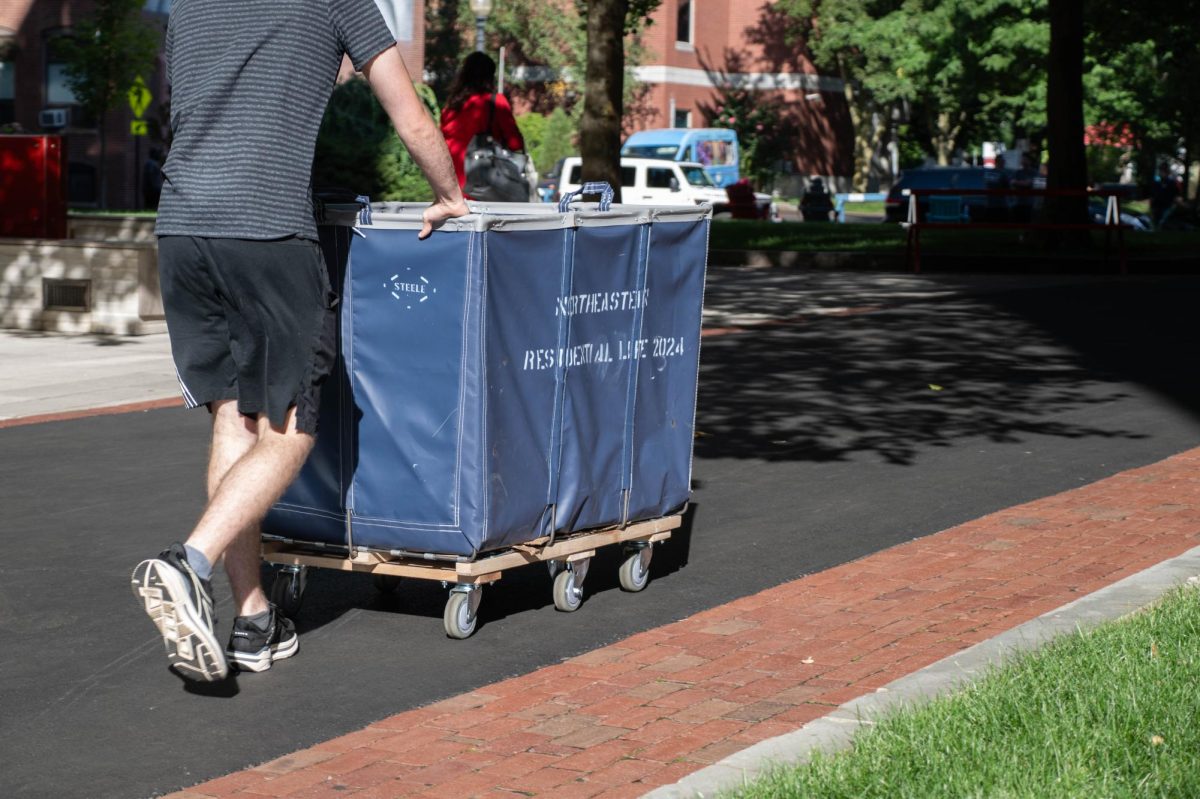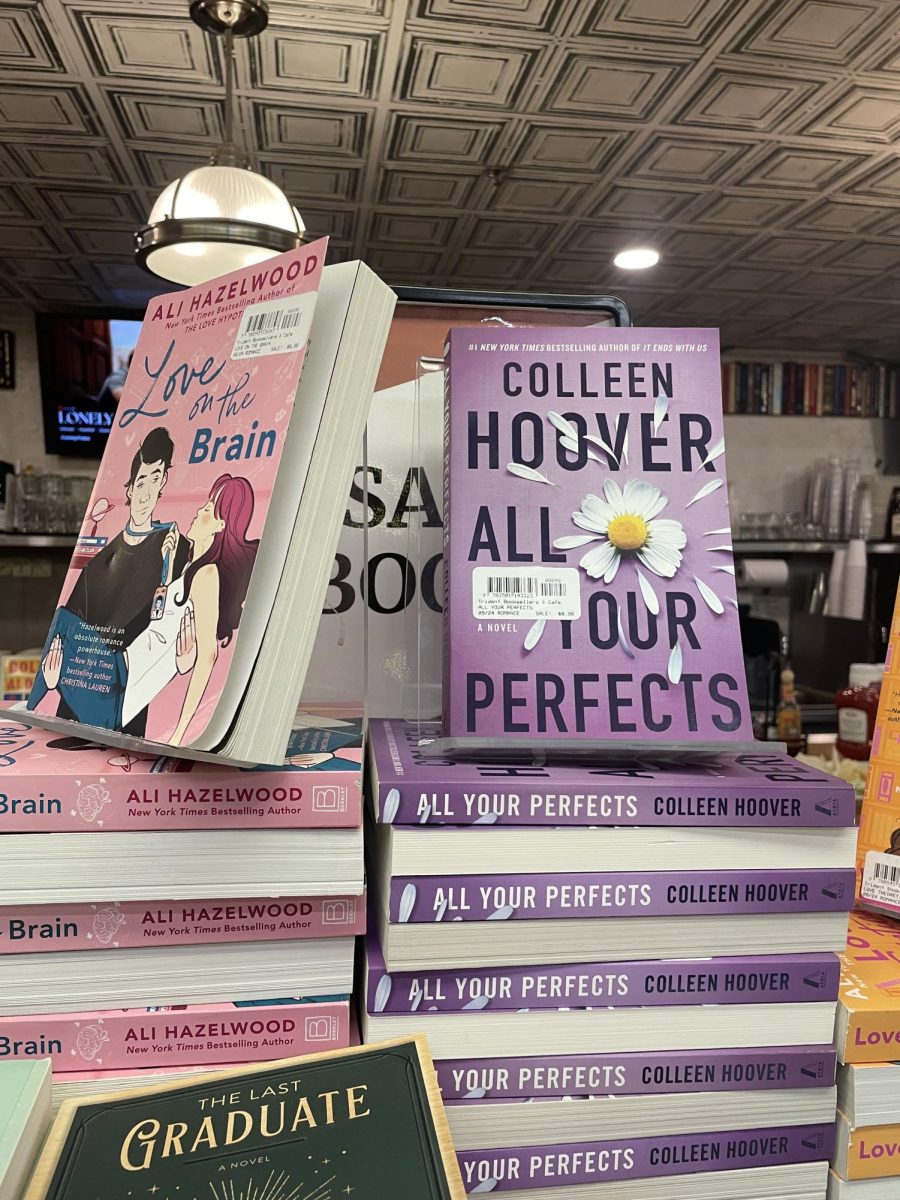When Americans talk about Palestine, one word quickly arises: “complicated.” That word, and its closely related cousin “nuance,” seem to be the only words most are capable of using on an issue that is decidedly neither of those things. It is even more surprising to hear the word spoken at universities, where students and faculty supposedly pursue truth and moral clarity. In classrooms where the secrets of our anatomy are learned and laboratories where life-saving medicine is developed, many things are “complicated.” The morality of ethnic cleansing, apartheid and nearly a century of dispossession is not one of them.
And yet, this is the characterization that Northeastern and other universities in Boston have chosen to promote regarding the recent events in Palestine.
“We realize that the Israeli-Palestinian conflict ignites strong views on all sides. As an academic institution, we welcome peaceful dialogue and debate that is inclusive of all viewpoints,” Northeastern leaders wrote in an Oct. 10 statement.
But while they feign impartiality, the university’s investments and suppression of Palestinian voices make crystal clear their support for Israel’s barbaric deeds. While pro-Israel students raise money and pen encouraging letters to an army currently slaughtering more children than in nearly any other modern conflict, Palestinians and their allies on college campuses must endure doxxing, intimidation, arrest and violence just to be afforded the right to speak.
When those who refuse to take a clear moral stance speak of “nuance,” they are not sincerely asking for an examination of the history of the conflict. For if they did, how could they not speak of the near-endless humiliation and injustice suffered by Palestinians at the hands of Israel long before a single shot in this war was fired? Have they nothing to say about the checkpoints that divide families and the constant threat of expulsion from one’s home at gunpoint by Kahanist settlers? Where were the oh-so-sophisticated eyes when Gazans were subjected to a crushing blockade in 2007 that turned their land into an open-air prison?
For these individuals, “complicated” refers to their own sympathies with the Israeli war machine, not any preoccupation with facts. It is only when the chickens come home to roost, when Israelis are victims of a fraction of the violence they’ve meted out for decades, that they can truly find their voice to condemn. Hamas “redefines evil,” the IDF, at best, must merely exercise some restraint.
This is not just a matter of free speech where Palestinians must simply be afforded the same rights to expression as Zionists. There is no moral equivalence between those who raise their voice to speak against Israel’s genocide and those who enthusiastically cheer for its continuation. The Palestinian aspiration for freedom for all their people — yes, from the river to the sea — should not be negotiable. As the past two months have shown, the regime that slaughters Palestinians in Gaza, the West Bank and the Green Line is the same; it is for that reason that it must fall in all of those places.
For the Palestinians in Gaza, the current bombardment, though the most deadly, is merely the latest in a long history of aggressions which Israeli politicians have casually referred to as “mowing the grass.” Forcibly expelled at gunpoint from their villages surrounding the territory in the 1948 Nakba, the majority of Gazans are refugees. Yet even though 2 million individuals were packed into 140 square meters of territory, Gaza has exemplified the concept of “sumud,” steadfastness, resisting Israel’s efforts to exterminate the Palestinian national struggle. It was from Gaza that the first intifada was born, shattering the racist myth prominent at the time that Palestinians were happier under colonial occupation. It was from Gaza that Palestinian youth gathered in the thousands in the “Great March of Return,” facing indiscriminate violence but never faltering.
For those who claim the supposed unwillingness of Palestinians to employ non-violence, who yearn for a “Palestinian Gandhi,” Gaza proves that their arguments ring hollow. The violence of Israel’s response to Hamas’ Oct.7 attack which killed approximately 1,200 Israelis was no less present in its response to the 2018 protests. Then Defense Minister Avigdor Lieberman expressed a sentiment heard many times from Israeli politicians in the last three months: “there are no innocents in Gaza.”
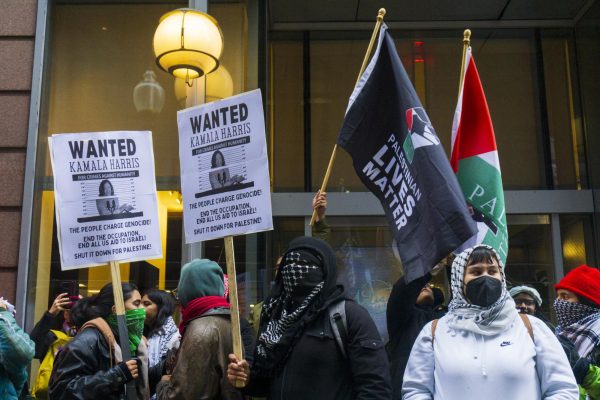
As of Dec. 27, nearly 21,000 Palestinians in Gaza have been killed. Nearly 1.8 million Palestinians have been forced from their homes amidst Israel’s bombardment and invasion of Gaza. Of the Palestinians dead, over 8,200 are children. Disease spreads rapidly, and Israeli forces have laid siege to hospitals while desperately spinning excuses and justifications for transparent war crimes. Every day, there are new atrocities in what some still deny is genocide and ethnic cleansing. Entire families have been wiped out. Journalists and intellectuals are explicitly targeted to silence the light they shine on the world. Women and children are mercilessly executed in the schools they seek shelter in. Palestinian men are rounded up, stripped and tortured. Israeli bulldozers have reportedly crushed Palestinians to their bones in an attempt to destroy their tents. How much longer must these atrocities persist before those caught up in the fervor of war will acknowledge that they are supporting one of the greatest crimes of the 21st century?
If these horrors sicken you, know that they are directly aided by the United States, which offers unqualified diplomatic and military support for what Israeli leaders are openly proclaiming to be the annihilation of the Palestinian people. Our government is more than complicit; it is an active collaborator. Yet American discourse remains fixated on the battle of words and college campuses, distracted by the manufactured controversy of whose denunciation of the current horror goes too far.
A ceasefire, something nearly the entire international community has called for, is the bare minimum; it is nothing more than the cessation of the slaughter unfolding. A return to the status quo, where Palestinians suffer quietly, is untenable and would merely be what Martin Luther King Jr. described as a “negative peace,” which is not justice. The state of Israel must be held accountable for its crimes against humanity and should be treated as the pariah state that it has proven itself to be. Palestinians are not children of a lesser God. They deserve more than simply life; they deserve and demand liberation.
Noah Colbert is a fourth-year mathematics and political science major. He can be reached at [email protected]


